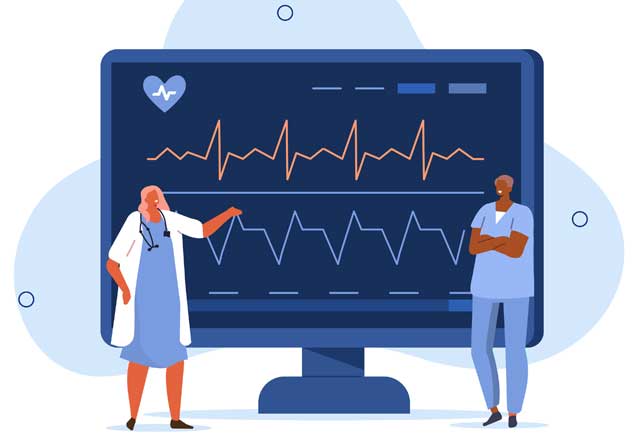When it comes to improving business efficiency with AI, the manufacturing and service industries tend to be mentioned, but in the UK and other European countries, AI is also beginning to be used in the medical field.
Many countries in the UK and continental Europe have universal health insurance, so medical expenses are free, but the budget available for national hospitals is limited and the population is aging. , there is always a shortage of personnel on-site, and we are working hard to improve operational efficiency.
One example of such efficiency improvements that has recently attracted attention is the “AI death calculator” at British national hospitals. The system, called ‘AI-ECG risk estimation’ or ‘AIRE‘, was developed by researchers at Imperial College London and Imperial College Healthcare NHS Trust, and the findings were published in The Lancet Digital Health. I did.
An electrocardiogram (ECG) records the electrical activity of the heart, and the system’s AI model is trained to “read” that information and look at patterns in the electrical signals. Millions of ECG data from around the world are used to train the AI. As a result, it has been reported that it has become possible to accurately determine the 10-year mortality risk with up to 78% accuracy. This AI is now able to read more complex patterns than cardiologists.
Furthermore, diseases such as diabetes that affect organs such as the kidneys and liver are also reflected in the state of the heart and electrocardiogram, so reading the electrocardiogram enables analysis of a wide range of health conditions, and can also analyze the state of aging. It is said that
By mid-2025, clinical trials will begin and the model will be implemented for patients at hospitals in Imperial College Healthcare NHS Trust and Chelsea and Westminster Hospitals NHS Foundation Trust.
In other words, this system predicts the actual date of death of a patient, but since hospitals in the UK have a limited number of specialists and no overtime, the system compensates for the lack of staff and treats patients based on their condition. This means deciding on policies and how to allocate medical resources. In British hospitals, the money used for treatment is public money, so they are very strict in prioritizing patients. Since the number of specialists is limited and labor hours are strictly controlled, the demand for such a system will be quite high.
Japan is also experiencing a super-aging population, and hospitals cannot rely on volunteer labor from doctors and medical personnel as they have in the past due to work style reforms. It will also be important to proactively implement such systems to determine patient priorities and allocate medical resources. Additionally, such a system will help provide more accurate treatment.
Compared to Japan, the UK sometimes takes very bold medical initiatives, but this is because patient data is shared on a national scale, and patients of various races and nationalities come from all over the world. The reality behind this is that Since it collects a variety of data, it also contributes to the development of medical AI.
We will send you recommended articles and news from the editorial department. (Delivered every Monday)
Register here


